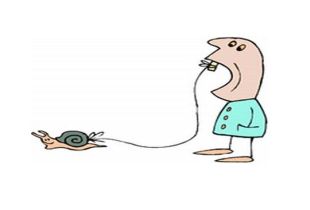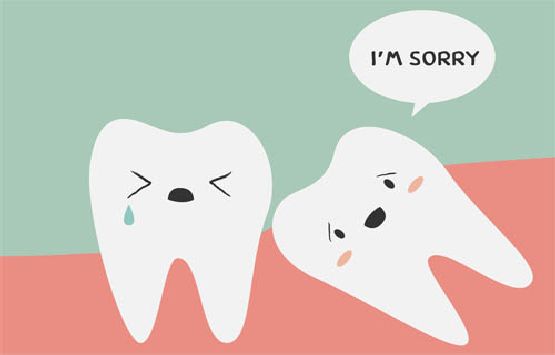 Wisdom Teeth
Wisdom Teeth
Between the ages of 17 and 25 years, wisdom teeth typically erupt in your mouth. These final four molars often grow unexpectedly and many problems often arise with their appearance.
What Are Wisdom Teeth?
Not sure if you have wisdom teeth? So named as they herald the person’s growing wisdom, the four teeth are located right at the back of the mouth, behind the second molars. Although not everybody has them, it is not uncommon for those that do have wisdom teeth to suffer from impacting with the teeth getting blocked by the tooth in front as they push through the gum into your mouth. Often the wisdom teeth grow sideways. They can become painfully embedded in the gum (or bone) or become partially exposed through the gum.
Our jaws are smaller than our ancestors (widely believed to be an evolutionary result of diet requirements and changes), resulting in less room in our mouth to accommodate the 32 teeth the average adult has. To effectively function, the human jaw only requires 28 teeth – if the additional 4 wisdom teeth are not properly aligned or poorly positioned then many oral health problems can occur.
Problems Caused By Impacting Wisdom Teeth - If your wisdom teeth are poorly positioned ( Impacted )
- Is the impacted tooth only partially exposed through the gum? If so, inflammation and or infection becomes inevitable. The gap between the tooth and gum attracts bacteria and food debris, which results in the overlying gum becoming inflamed (pericoronitis).
- The surfaces around the wisdom teeth are often very difficult to keep clean due to a lack of space. This can easily result in dental decay (caries) or gum problems (periodontal disease) that are very difficult to treat.
- Food trapping surrounding wisdom teeth can cause decay to the teeth in front due to the difficulty in keeping this area clean
- Infections and inflammation can occur in the bone (osteomyelitis) from bacteria in the bloodstream, or from nearby gum tissue beginning at impacted wisom teeth.
- Alhough rare, cysts and tumours can form around an impacted wisdom tooth which can cause significant damage to the jaw bone and require significant reconstructive surgery.
We suggest that if your wisdom teeth are causing you personal problems, discuss having them extracted with your dentist. We provide personal wisdom tooth assessment – contact us now to learn more on how to improve you oral health.
Care For Your Wisdom Teeth
To ensure you maintain optimal oral health - preventing cavities and infection, you’ll need to take good care of your wisdom teeth if they are not fully erupted. Regular daily flossing is especially important , paying attention to the space between the wisdom tooth and the tooth infront of it. Ensure that you reach all those more difficult areas all the way at the back when brushing twice daily.
Hobsonvillle dentists are skilled and here to help you with any wisdom tooth problems. We are often able to remove wisdom teeth with minimum discomfort and down-time to our patients. In addition there are many factors that you can manage to also hep with the healing.
- During the the first 24 hours post surgery , remember to rest up. Any overexertion can aggravate the site of surgery, increasing pain and bleeding.
- During the the first 24 hours post surgery , avoid chewing on the site. An initial softer food diet will be beneficial to healing in your first week.
- Avoid smoking, it promotes bleeding and slows healing
- Avoid alcohol, it may promote postoperative bleeding
- Also avoid sucking or spitting. These actions can also promote post operative bleeding and dislodge the blood clot ( potentially leading to dry socket)
- Anti-inflammatory medication such as ibuprofen (not aspirin, which can increase bleeding) can help manage swelling. Ice packs are also useful for pain management.
- Begin regular, gentle, warm saline solution mouth rinses 24 hours after surgery - if advised by your dentist
- Should you develop any unusual bleeding, swelling or pain contact us. If this occurs after hours please attend your local A and E service.
Wisdom tooth removal: the risks
As with any surgical procedure, a measure of swelling, bleeding, bruising and discomfort usually follows wisdom tooth extraction. Some transient numbness of the tongue, lip or chin may also occur due to nerve injury during the extraction process. This very rarely can be permanent.
Need to know more? Contact us here info@hobsonvillepointdental.co.nz or call us today.
Read about when wisdom teeth should be removed in our blog by clicking here 
Hobsonville Point Dental
160 Hobsonville Point Road, Hobsonville Point, Auckland 0618
09 320 0504 info@hobsonvillepointdental.co.nz
